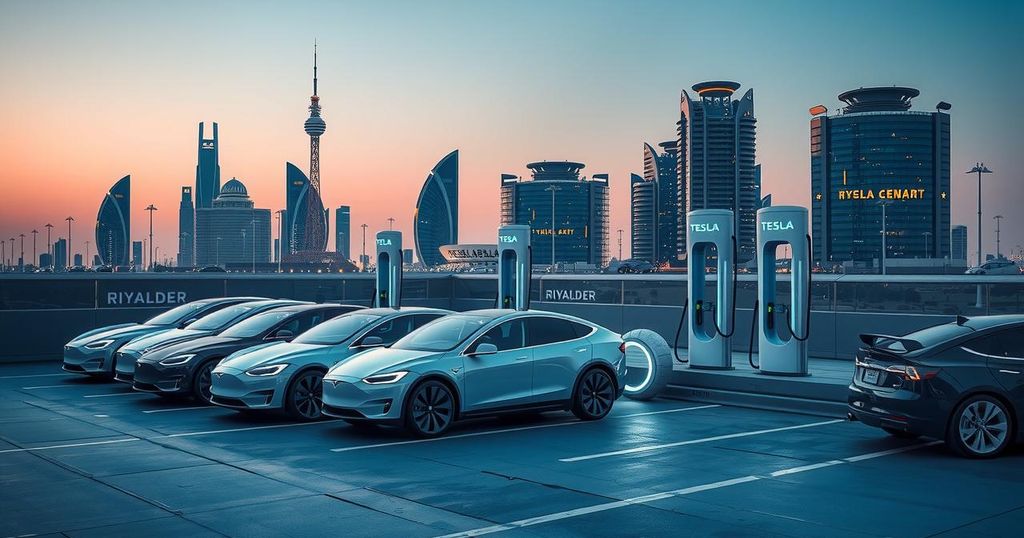Tesla Set to Launch in Saudi Arabia on April 10

Tesla will launch in Saudi Arabia on April 10, signaling improved relations with the kingdom. The event will showcase Tesla’s full model range and emphasize solar energy technology. Despite this, heightened competition and declining sales in Europe pose challenges for Tesla’s entry into the Saudi market.
Tesla is poised for its launch in Saudi Arabia on April 10, with the event scheduled to take place in Riyadh. This development indicates a reconciliation between Elon Musk and the kingdom, following a dispute that arose in 2018 regarding Tesla’s potential privatization, which was suggested through a controversial tweet made by Musk. The friction led to legal challenges against Musk by investors after his claims did not materialize.
Since then, tensions have lessened, particularly following Musk’s prominent involvement in political campaigns in the U.S., facilitating improved relations with Saudi officials. The launch event will present Tesla’s entire model range, emphasizing products fueled by solar power, as well as advancements in autonomous driving technology, artificial intelligence, and robotics.
Despite Tesla’s ambitious launch, the company is facing declining sales and market share in Europe, as evident from a report by the European Automobile Manufacturers Association. Tesla’s sales in Europe have plummeted by approximately 42.6% this year, largely attributable to controversies surrounding Musk. Furthermore, protests in the U.S. highlight growing dissent against Musk’s leadership decisions, affecting Tesla’s reputation.
Saudi Arabia’s involvement in the EV sector is noteworthy, as the kingdom’s sovereign wealth fund has substantial investments in Lucid Group, a rival in the EV market. Currently, electric vehicles (EVs) from companies such as Lucid and China’s BYD are present in Saudi Arabia, yet overall EV sales remain sluggish, comprising merely 1% of total car sales according to a 2024 report by PwC.
Further complicating Tesla’s entry into this new market is the existing presence of other EV brands, coupled with the perception that petrol vehicles are more economically viable in a region where fuel is notably inexpensive. EV adoption in the Middle East is projected to be gradual, hinging largely on improvements in charging infrastructure and market sentiment toward electric vehicles.
Historically, Tesla has had a foothold in neighboring Middle Eastern countries such as the UAE and Qatar, which may enhance its potential for market penetration in Saudi Arabia. Analysts, however, express skepticism about Tesla’s ability to capture significant market share in the Kingdom given the dominance of traditional internal combustion engine vehicles and ongoing challenges in changing consumer preferences towards EVs.
In summary, Tesla’s upcoming launch in Saudi Arabia on April 10 represents a significant milestone that reflects improved relations between the company and the kingdom. Nevertheless, the challenges posed by declining sales in European markets, competition from established EV brands, and the prevailing economic conditions in the region may hinder Tesla’s success in Saudi Arabia. The future of EVs in the Middle East, especially in relation to consumer preferences and infrastructure, will play a critical role in determining Tesla’s impact in this market.
Original Source: www.team-bhp.com




